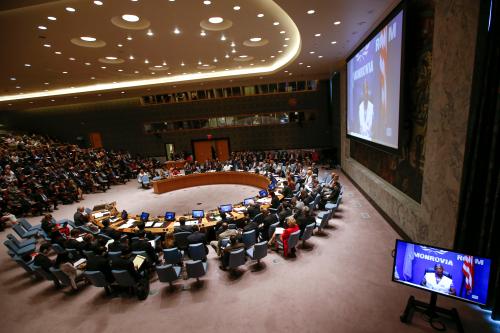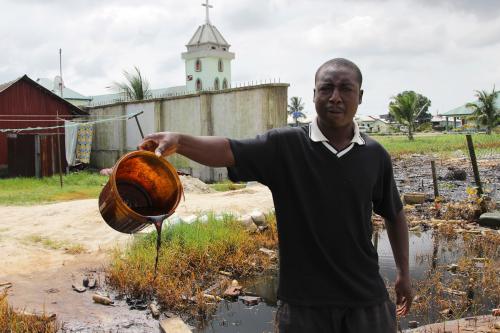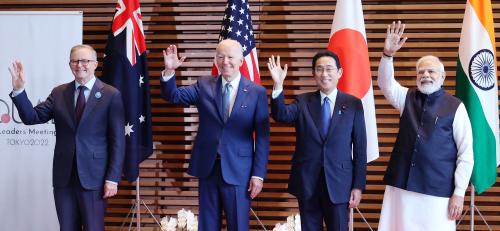Nigeria’s central bank opens a new foreign exchange window to attract investors
On Monday, the Central Bank of Nigeria introduced a new window for investors and exporters to engage in foreign exchange trading. The platform—called the Investors’ and Exporters’ FX Window—aims to boost the availability of U.S. dollars in the economy. The window allows sellers and buyers to conduct currency trades via phone at rates determined by the market, falling between the official interbank rate and the black-market rate. Banks, portfolio investors, exporters, and the central bank will sell hard currency to interested buyers via this platform. Those eligible to purchase dollars through the new system include people and businesses using dollars to repay loans and loan interest, pay dividends, repatriate capital, or resolve trade-related obligations. By creating a market where the naira can be traded at a weaker value than the official interbank rate for certain transactions, the platform strives to attract foreign investors and improve the supply of U.S. dollars in the economy, without policymakers resorting to floating or devaluing the currency, which could lead to an inflationary spiral.
On Wednesday, the naira closed at 380.39 on the new foreign exchange trading window while the naira’s official interbank market rate stood at 305.90 naira and the black-market rate was 388 naira. With the advent of the new window, Nigeria now has six exchange rates: the new rate, the official interbank rate, the black-market rate, a rate for Muslim pilgrims going to Saudi Arabia, a retail rate set by licensed exchange bureaus, and a rate for foreign travel and school fees.
Pentagon chiefs visits Djibouti and issues a warning against piracy
This week, United States Secretary of Defense Jim Mattis was in Djibouti where he met with President Ismaïl Omar Guelleh to advance U.S.-Djibouti efforts towards promoting regional stability as well as visit the only American base on the continent. Given the country’s location on the Bab el-Maned strait, through which dozens of military and commercial ships pass every day, the U.S. base is strategically located. The base is critical to American security outreach in the region, as the facility is used to conduct counterterrorism operations against al-Shabab. This visit follows the White House’s recent approval of a proposal by the Pentagon to provide more leeway around the launch of military strikes against al-Shabab. The proposal removed the requirement for an approval from the White House in order to launch offensive attacks against the group. The head of the Africa Command now possesses the authority to order said attacks.
The base has also been used to combat piracy in the region. During the visit, Secretary Mattis warned against the recent spike in attacks from Somali pirates. While he does not presently call for a response from the United States, he urged mariners and shipping companies to be on high alert amid the occurrence of a half-dozen pirate attacks on commercial ships within the last two weeks. The head of the U.S. Africa Command, General Thomas Waldhauser, attributes the recent rise in piracy to drought and famine.
World Food Program convoy headed for refugees is denied entry into Burundi
Last Friday, authorities in Burundi denied World Food Program (WFP) trucks with 300 tons of beans headed for 112,000 refugees and other food-insecure citizens in its country entry at the Rwandan border. Police spokesman Pierre Nkurikiye stated that the denial of entry was due to “security reasons,” claiming its northern neighbor Rwanda has been a source of “crime and insecurity” since 2015. Burundi has faced political instability and violence—exacerbating food insecurity within the country—since 2015 due to the controversial decision by President Pierre Nkurunziza to run for a third term. Bujumbura blames Kigali for training and arming rebel forces.
The 10 trucks turned back on Tuesday arrived in Kigali on Wednesday. The WFP has insisted to the Burundi government that the food is not from the Rwandan government, but rather a local supplier, a regular practice. The WFP has emphasized that they bought the food in Rwanda as prices are lower, allowing them to get more food per dollar. So far, it is unclear whether the border is permanently closed to the WFP, but, if so, the alternate route through Tanzania will add $35,000 more to current transport costs.







Commentary
Africa in the news: Nigeria introduces new foreign exchange window, U.S. Defense Secretary visits Djibouti, and Burundi denies access to WFP convoy
April 28, 2017